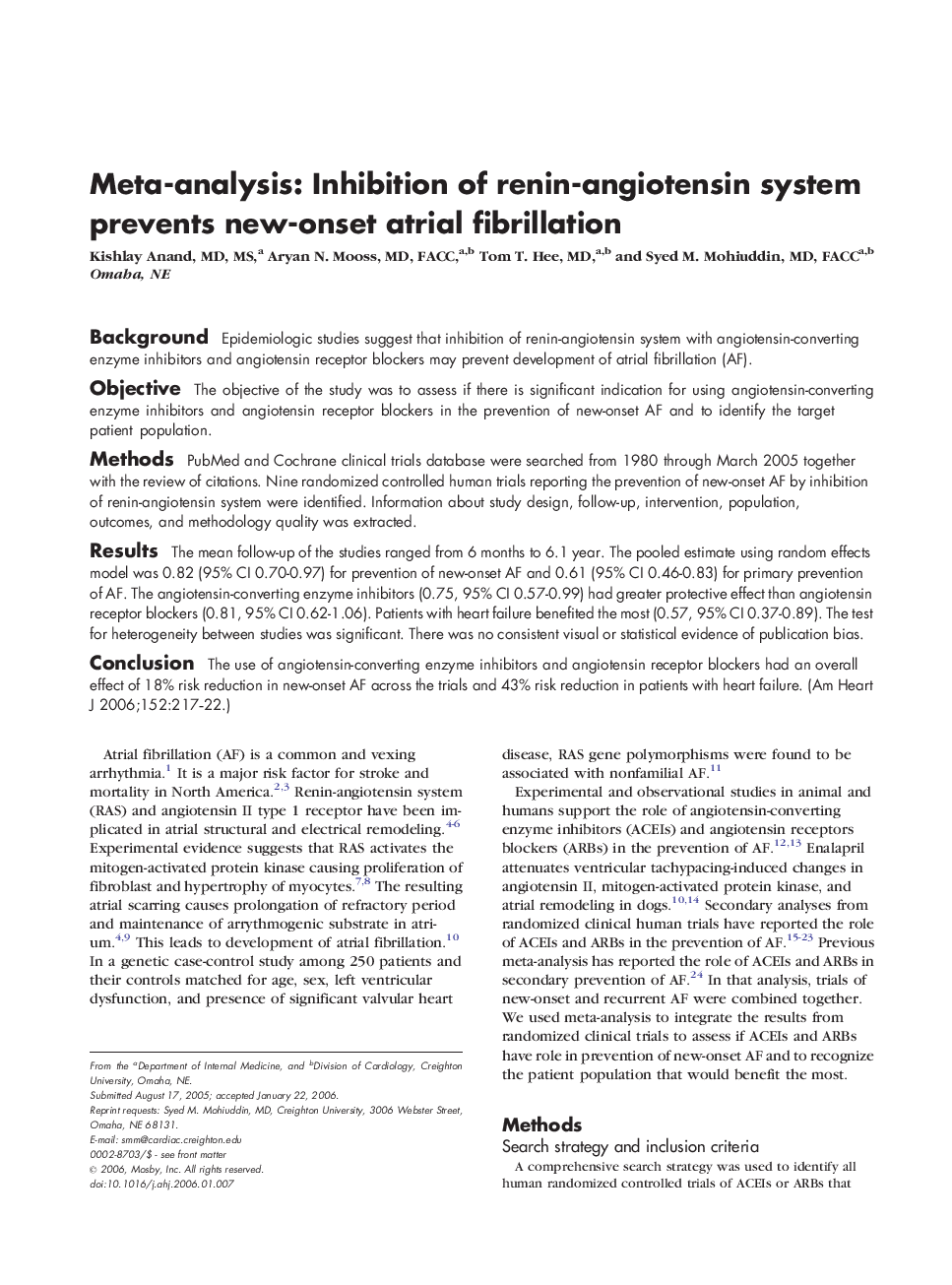| کد مقاله | کد نشریه | سال انتشار | مقاله انگلیسی | نسخه تمام متن |
|---|---|---|---|---|
| 2849265 | 1167677 | 2006 | 6 صفحه PDF | دانلود رایگان |

BackgroundEpidemiologic studies suggest that inhibition of renin-angiotensin system with angiotensin-converting enzyme inhibitors and angiotensin receptor blockers may prevent development of atrial fibrillation (AF).ObjectiveThe objective of the study was to assess if there is significant indication for using angiotensin-converting enzyme inhibitors and angiotensin receptor blockers in the prevention of new-onset AF and to identify the target patient population.MethodsPubMed and Cochrane clinical trials database were searched from 1980 through March 2005 together with the review of citations. Nine randomized controlled human trials reporting the prevention of new-onset AF by inhibition of renin-angiotensin system were identified. Information about study design, follow-up, intervention, population, outcomes, and methodology quality was extracted.ResultsThe mean follow-up of the studies ranged from 6 months to 6.1 year. The pooled estimate using random effects model was 0.82 (95% CI 0.70-0.97) for prevention of new-onset AF and 0.61 (95% CI 0.46-0.83) for primary prevention of AF. The angiotensin-converting enzyme inhibitors (0.75, 95% CI 0.57-0.99) had greater protective effect than angiotensin receptor blockers (0.81, 95% CI 0.62-1.06). Patients with heart failure benefited the most (0.57, 95% CI 0.37-0.89). The test for heterogeneity between studies was significant. There was no consistent visual or statistical evidence of publication bias.ConclusionThe use of angiotensin-converting enzyme inhibitors and angiotensin receptor blockers had an overall effect of 18% risk reduction in new-onset AF across the trials and 43% risk reduction in patients with heart failure.
Journal: American Heart Journal - Volume 152, Issue 2, August 2006, Pages 217–222